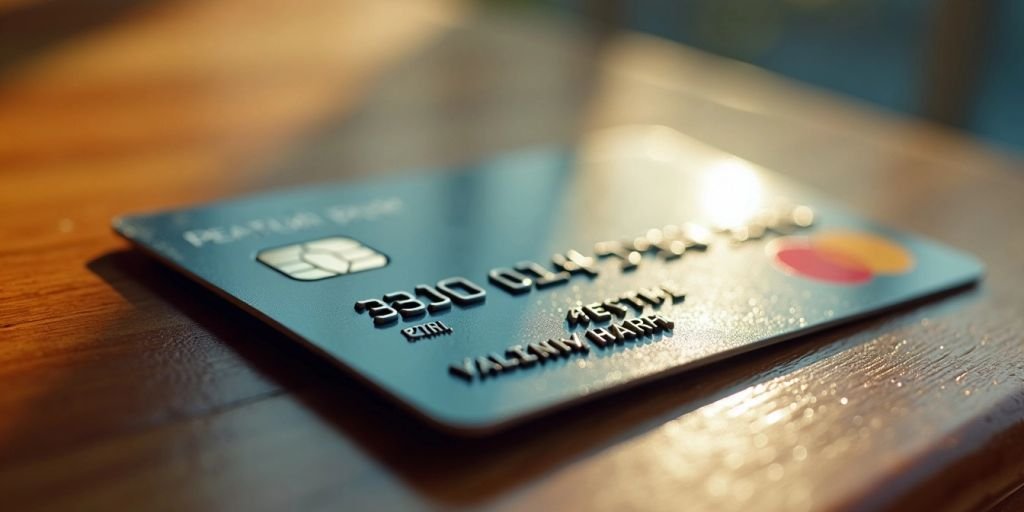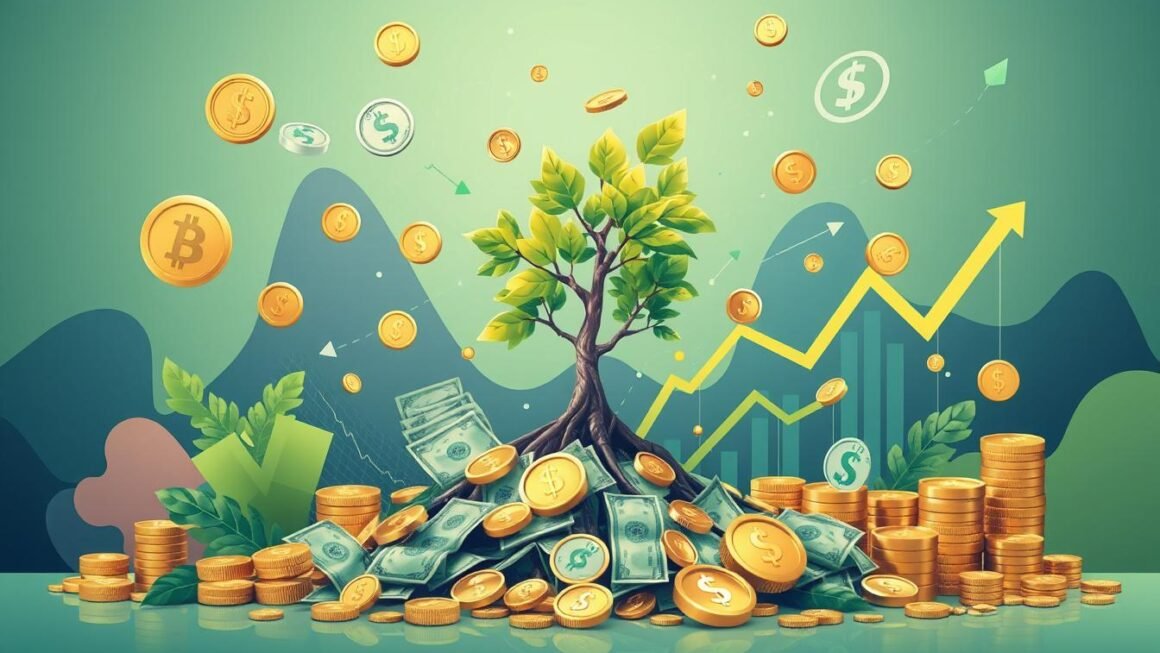Credit cards can be confusing, and there are many myths about them. This article aims to clear up some of these misunderstandings and highlight the real benefits of using credit cards. By knowing the truth about credit cards, you can make better choices for your financial future.
Key Takeaways
- Credit cards can help you build a good credit history if used wisely.
- They offer rewards like cash back and points for purchases you make.
- Using a credit card can protect you from fraud more effectively than cash.
- Paying with a credit card is often safer and more convenient than carrying cash.
- Understanding fees and interest rates can help you avoid extra costs.
Common Misconceptions About Credit Cards
Many people have misunderstandings about credit cards that can lead to poor financial choices. Here are some of the most common myths:
Credit Cards Lead to Debt
- Many believe that using credit cards will automatically lead to debt. However, this is not true if you manage your spending wisely.
- Paying off your balance each month can help you avoid interest charges and keep your finances healthy.
- Leaving a small balance on your card does not improve your credit score; in fact, it can hurt it. Roughly a third (32%) of Americans wrongly believe that leaving a small balance on their credit card is better for their credit scores than paying it off.
Credit Cards Are Only for the Wealthy
- Some think that only wealthy people can benefit from credit cards. This is a misconception.
- Credit cards can be useful for anyone, regardless of income, as long as they are used responsibly.
- They can help build a credit history, which is important for future loans and mortgages.
Have Hidden Fees
- While some credit cards do have fees, not all of them do. It’s important to read the terms and conditions.
- Common fees include annual fees, late payment fees, and foreign transaction fees, but many cards offer no annual fee options.
- Always compare different cards to find one that fits your needs without unnecessary costs.
Understanding these misconceptions can help you use credit cards effectively and avoid common pitfalls. By being informed, you can make better financial decisions and enjoy the benefits of credit cards without falling into debt.
The Real Benefits of Using Credit Cards

Building Credit History
Using a credit card can help you build a strong credit history. This is important because a good credit score can lead to better loan terms and lower interest rates in the future. Here are some key points:
- Timely payments boost your score.
- A longer credit history is beneficial.
- Using different types of credit can improve your score.
Rewards and Cash Back
Many credit cards offer rewards or cash back on purchases. This means you can earn money or points just for spending. Some benefits include:
- Cash back on everyday purchases.
- Points that can be redeemed for travel or gifts.
- Special offers for using your card at certain stores.
Fraud Protection
Credit cards often come with strong fraud protection. If someone uses your card without permission, you usually won’t be responsible for those charges. Here’s how it works:
- Report the fraud immediately.
- Most companies will investigate and refund you.
- You can monitor your account for suspicious activity.
Convenience and Safety
Using a credit card is often more convenient than carrying cash. It also offers safety features:
- You can make online purchases easily.
- Many cards offer travel insurance.
- You can track your spending through statements.
Credit cards can be one of the best ways to improve your overall financial health by growing your credit score and earning rewards.
In summary, credit cards provide various benefits that can enhance your financial situation. By understanding these advantages, you can make informed decisions about using credit cards effectively.
Understanding Credit Card Interest Rates
How Interest Rates Are Calculated
Interest rates on credit cards can be tricky. They are usually expressed as Annual Percentage Rate (APR), which shows how much it costs to borrow money over a year. Here’s how it works:
- APR is the yearly interest rate.
- It can vary based on your credit score.
- Some cards have a fixed APR, while others have a variable rate that can change.
The Impact of APR on Your Finances
The APR can significantly affect your finances. Here’s a simple breakdown:
- A higher APR means you pay more in interest.
- If you carry a balance, the interest adds up quickly.
- Paying on time can help keep your APR lower.
| APR Range | Monthly Payment on $1,000 Balance | Total Interest Paid Over 1 Year |
|---|---|---|
| 15% | $150 | $150 |
| 20% | $200 | $200 |
| 25% | $250 | $250 |
Tips to Avoid High Interest Charges
To keep your interest charges low, consider these tips:
- Pay your balance in full each month.
- Set up reminders for payment due dates.
- Choose a card with a lower APR if possible.
Understanding how interest rates work can help you make better financial decisions. Being informed is key!
Credit Card Fees and How to Avoid Them
Credit cards can come with various fees that can add up quickly if you’re not careful. Understanding these fees is essential to managing your finances effectively. Here are some common fees and how to avoid them:
Annual Fees
- Some credit cards charge an annual fee just for having the card.
- Tip: Look for cards with no annual fee or those that waive the fee for the first year.
- Always read the terms before applying.
Late Payment Fees
- If you miss a payment, you might face a late fee. This can be as high as $40.
- Tip: Set up reminders or automatic payments to avoid this fee.
Foreign Transaction Fees
- Traveling abroad? Some cards charge a fee for purchases made in other currencies.
- Tip: Use a card that has no foreign transaction fees to save money while traveling.
Balance Transfer Fees
- Transferring a balance from one card to another can also incur fees, usually around 3% to 5% of the amount transferred.
- Tip: Look for promotional offers that allow balance transfers with no fees.
| Fee Type | Average Cost | How to Avoid It |
|---|---|---|
| Annual Fee | $0 – $500 | Choose no-fee cards |
| Late Payment Fee | Up to $40 | Set reminders or auto-pay |
| Foreign Transaction Fee | 1% – 3% | Use no-foreign-fee cards |
| Balance Transfer Fee | 3% – 5% | Look for no-fee transfer offers |
Understanding these fees can help you save money and use your credit card wisely. Forbes Advisor has compiled a list of the most common credit card fees, along with strategies to steer clear of the charges.
The Role of Credit Scores in Credit Card Approval

What Is a Credit Score?
A credit score is a number that shows how likely you are to pay back money you borrow. It plays a crucial role in determining your eligibility when applying for a loan or credit card. Lenders use this score to decide if they should give you credit and what interest rate to charge.
How Credit Scores Are Calculated
Credit scores are calculated based on several factors:
- Payment history: Do you pay your bills on time?
- Credit utilization: How much of your available credit are you using?
- Length of credit history: How long have you had credit accounts?
- Types of credit: Do you have a mix of credit types, like credit cards and loans?
- New credit inquiries: Have you applied for new credit recently?
Improving Your Credit Score
Improving your credit score can help you get better credit card offers. Here are some tips:
- Pay your bills on time.
- Keep your credit card balances low.
- Avoid opening too many new accounts at once.
The Impact of Credit Scores on Approval Rates
Your credit score can greatly affect your chances of getting approved for a credit card. Generally, the higher your score, the better your chances. Here’s a simple breakdown:
| Credit Score Range | Approval Chances |
|---|---|
| 300 – 579 | Low |
| 580 – 669 | Fair |
| 670 – 739 | Good |
| 740 – 799 | Very Good |
| 800 – 850 | Excellent |
Understanding your credit score is essential for making informed financial decisions. It can open doors to better credit options and lower interest rates.
Responsible Credit Card Usage
Using a credit card wisely is important for your financial health. Here are some key points to consider:
Setting a Budget
- Create a monthly budget to track your spending.
- Decide how much you can afford to charge on your card.
- Stick to your budget to avoid overspending.
Paying Your Balance in Full
- Always try to pay your balance in full each month to avoid interest charges.
- If you can’t pay in full, make at least the minimum payment on time.
- Late payments can lead to fees and hurt your credit score.
Monitoring Your Statements
- Regularly check your credit card statements for any errors or unauthorized charges.
- Report any suspicious activity immediately.
- Use mobile apps or online banking to keep track of your spending.
Understanding Your Credit Limit
- Know your credit limit and try not to exceed it.
- Exceeding your limit can lead to fees and negatively impact your credit score.
- Keep your utilization ratio low (ideally below 30%) to maintain a good credit score.
Remember, using a credit card responsibly can help you build a positive credit history and avoid debt. Stay informed and accountable to make the most of your credit card!
Debunking Myths About Credit Card Rewards
Rewards Are Not Worth It
Many people think that credit card rewards are not worth the effort. However, using rewards wisely can lead to significant savings. Here are some reasons why rewards can be beneficial:
- Cash back on everyday purchases.
- Travel points that can save you money on vacations.
- Discounts on future purchases.
Points and Miles Expire Quickly
Another common belief is that points and miles expire too quickly to be useful. While some programs do have expiration dates, many allow you to keep your points as long as you remain active. Here are tips to keep your rewards:
- Use your card regularly to keep points active.
- Check your rewards program for expiration policies.
- Redeem points before they expire.
You Need to Spend a Lot to Earn Rewards
Some think that only big spenders can benefit from rewards. This is not true! You can earn rewards on small purchases too. Here’s how:
- Use your card for groceries and gas.
- Pay for monthly bills with your card.
- Look for bonus categories that offer extra points.
Credit card rewards can be a great way to save money if you use them wisely. Just remember to pay your balance in full to avoid interest charges. Payment history is crucial for maintaining a good credit score.
In conclusion, understanding the myths and realities of the “Mito do Cartão de Crédito” is essential for anyone looking to manage their finances wisely. Many people believe that credit cards are just a way to spend money without limits, but the truth is they come with responsibilities. It’s important to know how to use them properly to avoid debt and build a good credit score. By separating fact from fiction, you can make better choices about your financial future. Remember, knowledge is power when it comes to managing your money!
Frequently Asked Questions
What are some common myths about credit cards?
Many people think credit cards always lead to debt, that only rich people can use them, or that they come with hidden fees.
How can credit cards be beneficial?
Credit cards can help you build a good credit history, earn rewards or cash back, protect you from fraud, and make shopping safer.
How do credit card interest rates work?
Interest rates on credit cards are often based on your credit score and can vary. The Annual Percentage Rate (APR) shows how much interest you’ll pay.
What fees should I watch out for with credit cards?
Some common fees include annual fees, late payment fees, and foreign transaction fees. It’s best to read the terms carefully.
How important are credit scores for getting a credit card?
Your credit score is very important for getting approved for a credit card. Higher scores usually mean better chances.
What does responsible credit card use look like?
Responsible use means setting a budget, paying your balance in full each month, checking your statements regularly, and understanding your credit limit.




